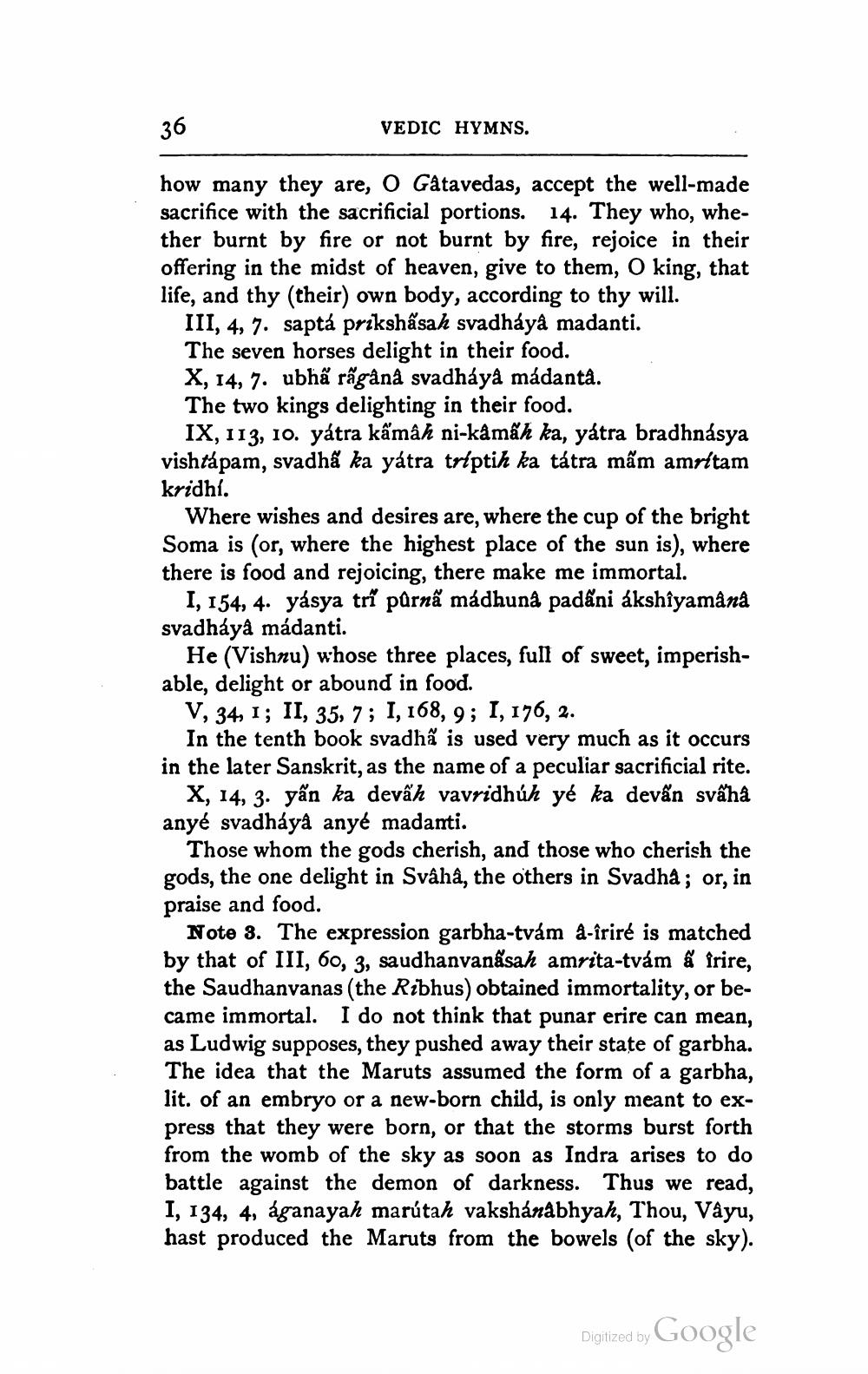________________
36
VEDIC HYMNS.
how many they are, O Gatavedas, accept the well-made sacrifice with the sacrificial portions. 14. They who, whether burnt by fire or not burnt by fire, rejoice in their offering in the midst of heaven, give to them, O king, that life, and thy (their) own body, according to thy will.
III, 4, 7. saptá prikshấsah svadháyå madanti. The seven horses delight in their food. X, 14, 7. ubhã rấgânå svadháyà mádantà. The two kings delighting in their food.
IX, 113, 10. yátra kấmâh ni-kamah ka, yatra bradhnásya vishtápam, svadha ka yatra triptih ka tátra mãm amritam kridhí.
Where wishes and desires are, where the cup of the bright Soma is (or, where the highest place of the sun is), where there is food and rejoicing, there make me immortal.
I, 154, 4. yasya trĩ půrnã madhuna padáni ákshîyamâna svadháyà mádanti.
He (Vishnu) whose three places, full of sweet, imperishable, delight or abound in food.
V, 34, I; II, 35, 7; I, 168, 9; I, 176, 2.
In the tenth book svadhã is used very much as it occurs in the later Sanskrit, as the name of a peculiar sacrificial rite.
X, 14, 3. yãn ka devấh vavridhúh yé ka devấn svấhå anyé svadháyå anyé madanti.
Those whom the gods cherish, and those who cherish the gods, the one delight in Svâhâ, the others in Svadha; or, in praise and food.
Note 3. The expression garbha-tvám a-îriré is matched by that of III, 60, 3, saudhanvanäsah amrita-tvám ă îrire, the Saudhanvanas (the Ribhus) obtained immortality, or became immortal. I do not think that punar erire can mean, as Ludwig supposes, they pushed away their state of garbha. The idea that the Maruts assumed the form of a garbha, lit. of an embryo or a new-born child, is only meant to express that they were born, or that the storms burst forth from the womb of the sky as soon as Indra arises to do battle against the demon of darkness. Thus we read, I, 134, 4, áganayah marútah vakshanabhyah, Thou, Vayu, hast produced the Maruts from the bowels (of the sky).
Digitized by Google




